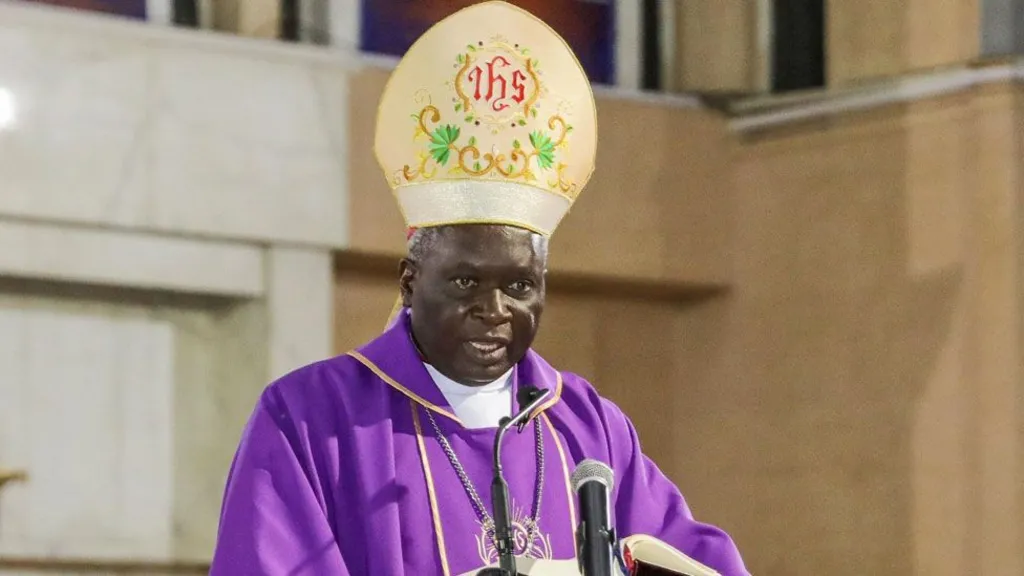
Kenya’s Catholic Church has recently rejected a donation of approximately $40,000 (£32,000) offered by President William Ruto. The donation was made during a Mass at Soweto Catholic Church in Nairobi, where Ruto had pledged the money for the construction of a priest’s house and as a gift for the church choir. This offer followed criticism from the country’s Catholic bishops, who had publicly denounced the government’s failure to meet its electoral promises.
The President’s donation included around 2.6 million Kenyan shillings ($20,000 or £16,000) in cash, with the rest of the amount to be pledged later. Additionally, Ruto promised to donate a bus to the parish. However, the Catholic Archbishop of Nairobi, Philip Anyolo, swiftly announced that the donation would be returned due to “ethical concerns” and to avoid the Church being used for political purposes. Archbishop Anyolo also rejected other pledges, including a 200,000 Kenyan shilling donation from Nairobi’s Governor, Johnson Sakaja, who had attended the same Mass.
In his statement, Archbishop Anyolo emphasized that the Catholic Church discourages the use of church events for political self-promotion. The Archbishop cited the breach of both Church guidelines and Kenyan law as reasons for returning the donations. The Church’s firm stance was clear: it does not want to be associated with political agendas, especially in a country where the majority of the population identifies as Christian.
This rejection is part of an ongoing strain between religious institutions and political figures in Kenya. In the past, churches and politicians had a long-standing relationship, but recent events have highlighted growing tensions. In 2021, established churches banned politicians from using church services as platforms to promote their political agendas in exchange for donations. However, the perception remained that some churches were still closely aligned with the government.
The situation has become more complex in 2024, as tensions escalated over a controversial new tax policy introduced by President Ruto’s administration. The policy led to widespread protests, particularly among young people who accused churches of siding with the government by not supporting their opposition to the tax hikes. These protests, which gained momentum under the hashtag #OccupyChurch, led to the withdrawal of the finance bill in July.
The Catholic Church has also been vocal about broader issues in the country. Last week, the Kenya Conference of Catholic Bishops, the body representing all Catholic bishops in the nation, issued a harsh statement accusing the government of fostering a “culture of lies.” The bishops pointed to several pressing concerns, including over-taxation, corruption, human rights violations, unemployment, and a failing education and healthcare system. The bishops also voiced concerns about the growing anxiety among Kenyans, who are losing faith in the government’s leadership.
In response to these criticisms, President Ruto appeared to indirectly challenge the bishops, cautioning against spreading misinformation. He stressed the importance of providing accurate information, warning that both politicians and the clergy could become victims of the very issues they accuse others of. A government senator, Aaron Cheruiyot, also weighed in, accusing the Church of spreading misinformation and urging the clergy to avoid promoting propaganda or falsehoods.
Kenya’s Christian population is vast, with an estimated 10 million Catholics, or around 20% of the country’s population, according to government figures. There are also many other Christian denominations, including evangelical churches and the Anglican Church of Kenya. The Anglican Church has notably supported the Catholic bishops’ stance, with Anglican Archbishop Jackson Ole Sapit backing the bishops’ criticisms of the government. He argued that the bishops were expressing the legitimate concerns of the Kenyan public and dismissed the government’s criticism of the statement as dishonest.
The tension between churches and politicians has been further intensified by protests against taxes, with young people accusing the churches of being too closely tied to political leaders. This complicated relationship highlights the growing frustration among ordinary Kenyans, who feel their voices are not being heard, even by the religious institutions they trust.
As the Catholic Church continues to reject political donations, it is clear that the divide between church and state in Kenya is widening, with the Church aiming to maintain its independence and moral authority amid the complex political landscape. The relationship between the government and religious institutions in Kenya remains a delicate balancing act, with both sides navigating public perception and seeking to maintain their influence in the country.






